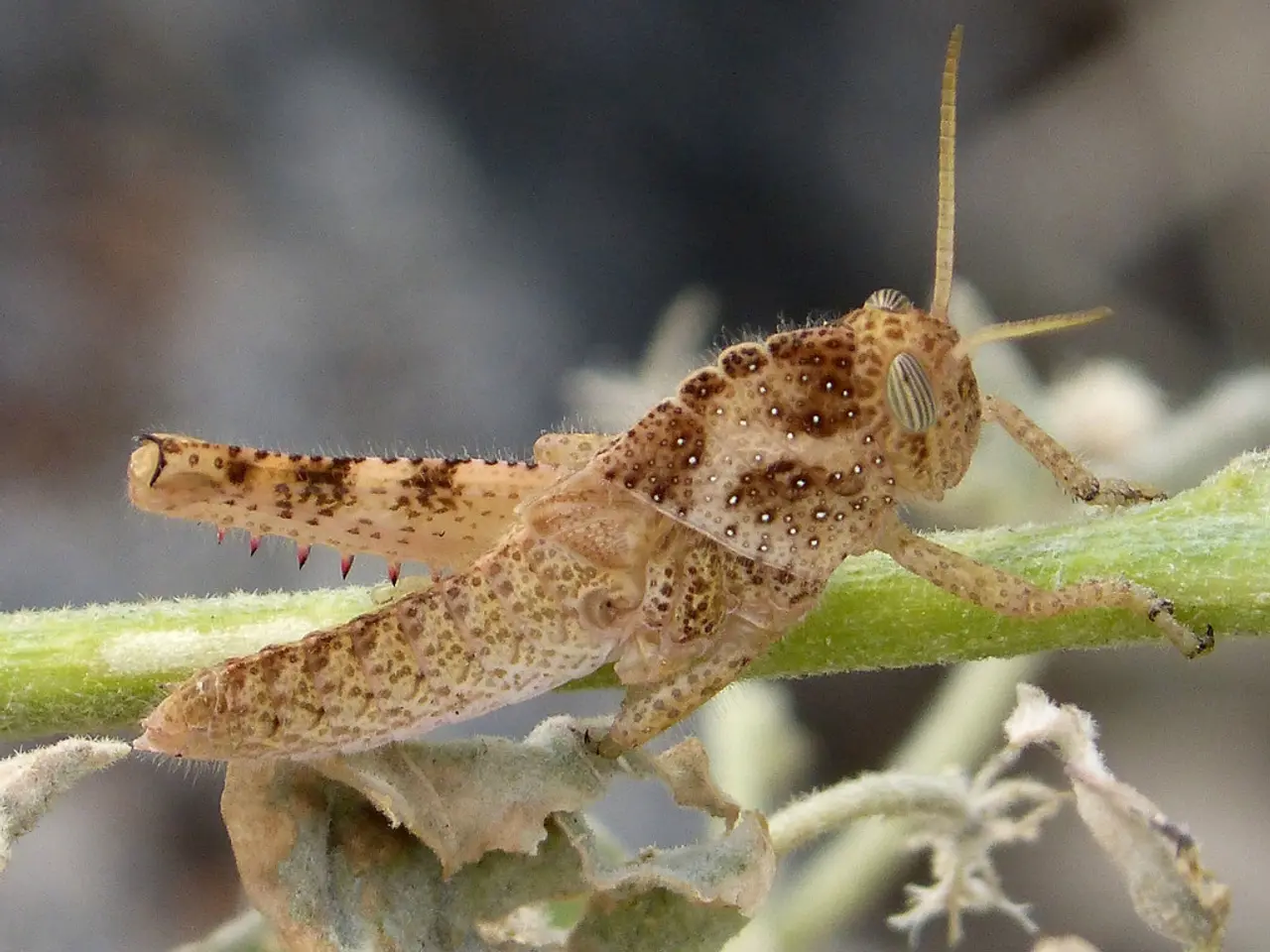Natural Pest Remedy for Earwigs in Gardens: Neem Oil Offers Effective Pest Control
Neem oil, a natural insecticide, is an effective solution for managing earwigs in gardens. This oil, derived from the seeds of the neem tree, offers several benefits for both plants and the environment.
Firstly, it's important to note that direct exposure to neem oil can irritate skin and eyes. Therefore, caution is key when handling and applying the oil. The active ingredient in neem oil is azadirachtin, which interferes with earwigs' hormones, stopping them from growing and laying eggs.
Neem oil is generally safe for beneficial insects like bees, ladybugs, and other pollinators. It can even help protect natural predators like birds, toads, and beneficial insects from harmful chemicals.
When using neem oil for earwig control, mix it with water and a bit of dish soap, then spray the solution on both sides of the leaves of affected plants, covering all plant surfaces, especially the undersides of leaves where earwigs tend to hide. Consistent application is key, spraying every 7-10 days.
In addition to neem oil, other eco-friendly alternatives or complementary options for pest control include using lavender, peppermint, rosemary, and cinnamon. Maintaining dry conditions also helps control earwigs, as earwigs love moisture. Fixing leaky pipes, improving drainage, keeping bathrooms and basements dry with a dehumidifier, and keeping gutters clean can help.
Using traps and barriers, such as oil traps made with vegetable oil or soy sauce, and diatomaceous earth (DE) sprinkled around entry points and plant bases, can provide added protection against earwigs. Cardboard traps at night and vacuuming infested areas are also effective methods.
Neem oil works against earwigs primarily by disrupting their feeding and neurological functions. Its active compound, azadirachtin, interferes with neurotransmission and feeding behavior, effectively deterring and reducing earwig populations. For best results, neem oil can be applied in rotation with other essential oils like clove oil every 10 days to slow the development of resistance among pests.
Neem oil is non-toxic to humans and pets when used as directed. Spraying neem oil in the evening is more effective due to earwigs' nocturnal nature. Keeping mulch at a safe distance from plant stems can also help control earwigs.
Glen, an experienced gardener with over 15 years of hands-on experience in garden maintenance, design, and landscaping services, recommends mixing 1 teaspoon of neem oil with water and adding liquid soap or detergent for application. He has written several posts on this blog, including "Garden Fungicides: Essential Tips for Disease-Free Plants," "When to Pick Candy Cane Peppers: Optimal Harvest Time Guide," and "When to Pick My Watermelon: A Gardener's Guide."
By choosing neem oil, gardeners can make their gardening practices safer for everyone while protecting beneficial parts of the ecosystem.
Adopting neem oil as part of one's home-and-garden routine can enhance lifestyle by providing a safe, eco-friendly solution for managing pests like earwigs. With its ability to interfere with earwigs' growth and reproduction, this oil can create a favorable environment for beneficial insects and other wildlife.
Enhancing one's home-and-garden landscape with additional eco-friendly pest control methods, such as essential oils or maintaining dry conditions, can further promote a balanced and thriving lifestyle.




